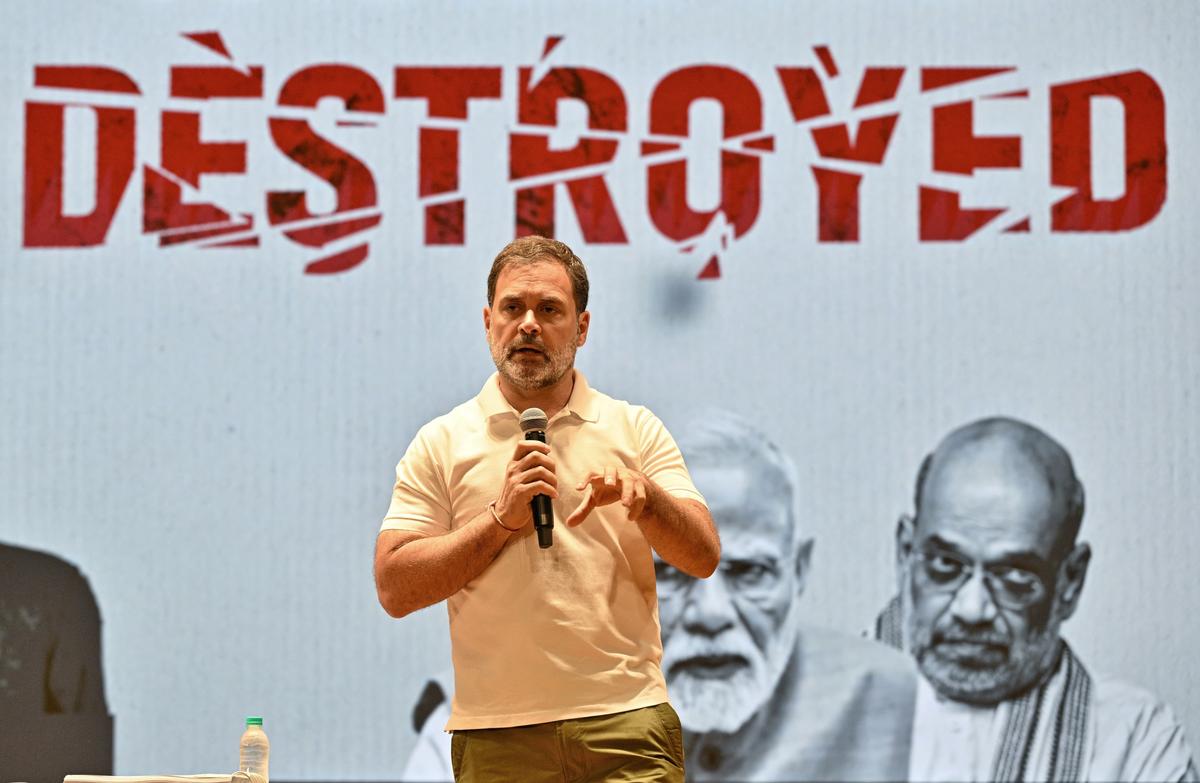
Rahul Gandhi's Claims of Fake Voters: A Reluctance to Sign the Oath
Rahul Gandhi has stirred controversy with his claims of fake voters and accusations of large-scale electoral fraud. His allegations include instances of duplicate voters, fake addresses, and the misuse of voter registration forms, raising serious concerns about the integrity of the electoral rolls.
Despite these bold assertions, when Karnataka's Chief Electoral Officer (CEO) requested Gandhi to substantiate his claims by providing specific names of the alleged fake voters, Gandhi hesitated. The CEO also asked him to sign an oath acknowledging his serious accusations, which has led to questions about his willingness to formally back his claims.
This reluctance to sign the oath could indicate that Gandhi is cautious about fully endorsing his allegations. It may also suggest a lack of solid evidence that the claims made against the electoral process can be officially verified. Such a situation adds layers to an already intriguing narrative, where Gandhi's allegations are being met with skepticism from electoral authorities and political rivals who insist that these accusations are unfounded or exaggerated.
Electoral officials have emphasized the critical need for verifiable evidence to support such claims. They have stated that necessary action could be taken against Gandhi or his team if they continue to assert their allegations without proper backing. This highlights a tense interplay between political rhetoric and the accountability mechanisms essential in a democratic process.
In summary, while Rahul Gandhi raises issues of voter fraud, his unwillingness to sign the oath from the Karnataka ECI CEO signals a strategic approach, possibly influenced by the lack of concrete proof. The ongoing debate emphasizes the importance of accountability in addressing serious claims surrounding the integrity of electoral systems.
